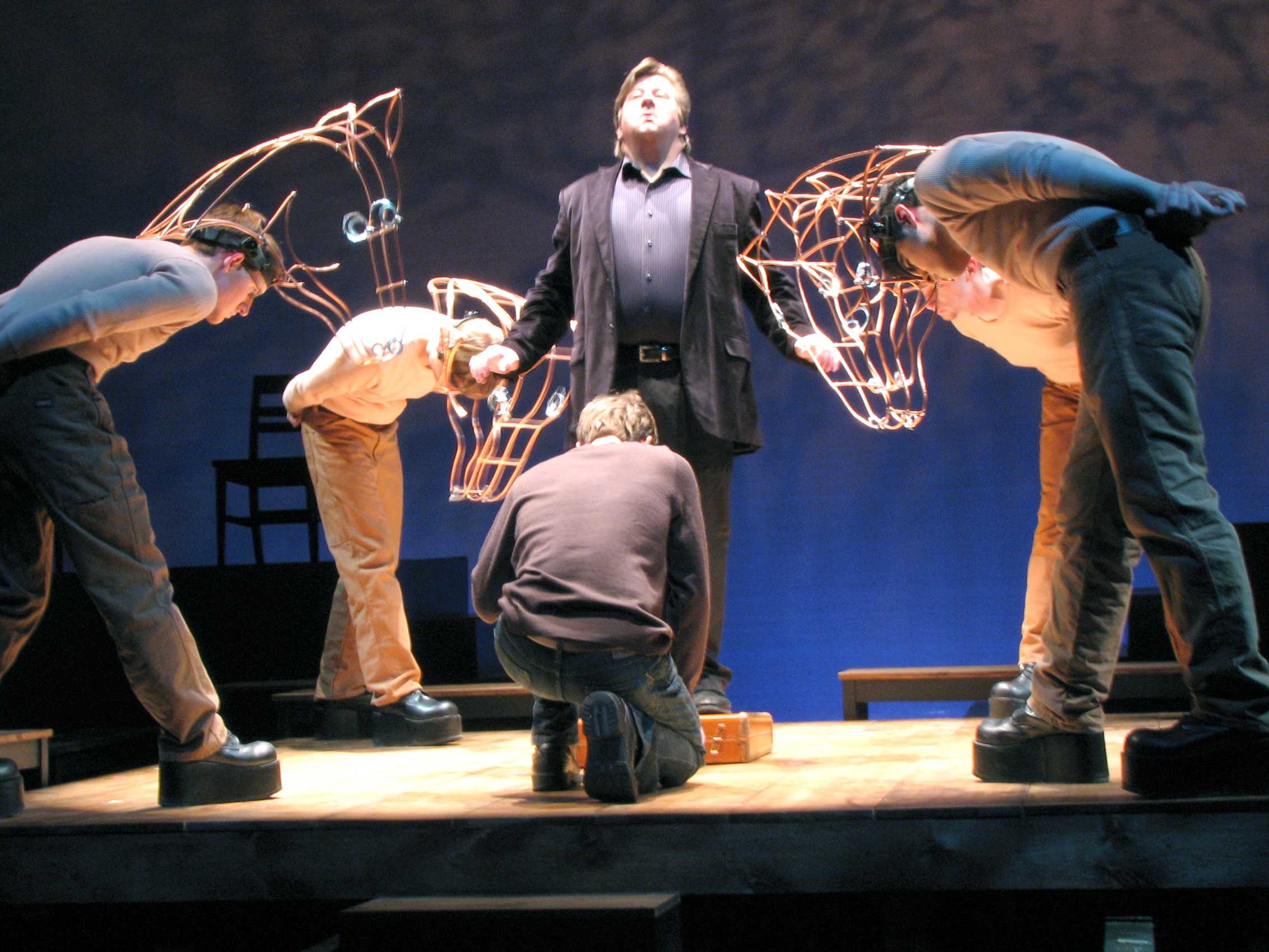
Having shocked audiences for nearly four decades, the controversial play “Equus” recently came to IU Southeast.
This play was made famous when Daniel Radcliffe, star of the “Harry Potter” movies, surprised fans by stripping down and bearing it all for everyone to see.
From Feb. 25 to March 6, the IUS Theatre Department presented its toned-down version of “Equus” in the Robinson Theater of the Ogle Center.
Other than a glimpse of a topless woman in a short love-making scene, the nudity was left to a minimum and was done tastefully.
Hardly anything could be seen as shocking in this production. More offensive things are shown on the nightly news.
Inspired by a horrible crime by a 17-year-old boy who blinded six horses, “Equus” was written in 1973 by playwright Peter Shaffer.
Fascinated by the incident, Shaffer wrote a fictional story that could have made the horrific act comprehensible while questioning what is normal and what is
transcendent.
The play centers on Alan Strang, played by talented University of Louisville graduate Drew Cash, whose bizarre sexual attraction to horses leads him to gouging the eyes out of six of them.
In the play, a compassionate court magistrate, Hester Salomon, played by IU Southeast’s lovely Vanessa Ferguson, theatre senior, committed Alan to a
psychiatric ward for what he’s done, seeing him as a victim in pain.
Believing he has the ability to help, Saloman asked psychiatrist Martin Dysart, played by the polished J.R. Stuart, professional actor, to help young Alan come to terms with what he did to the horses.
Dysart agreed, but while getting closer to knowing the motives behind Alan’s deep-seeded sufferings, he began doubting his abilities to help him.
The root of Alan’s sufferings is the inner conflict stemming from his religious mother and atheist father.
His mother, Dora Strang, played by the delightful Beth Hammond, English senior, read the Bible to him every night and taught him sex is to be saved for marriage.
His father, Frank Strang, played by the likable Ben Gierhart, theatre freshman, blamed religion on all the problems in their house — while he goes out at night frequenting adult movie theaters.
Because of Alan’s conflicted feelings about religion and sex, he worked in a stable part-time to not only escape the dysfunction of home but to be around the horses he loves.
Alan’s love for horses begins to symbolize his love for God. To get closer to God, Alan rode his favorite horse, Nugget, which he believes encompasses the spirit of Equus.
Equus becomes his image of God. One night while riding Equus and trying to become what he believes to be one with God, Alan had a sexual awakening in what is the play’s most controversial scene.
But the center of the story — the horrific act of blinding the horses — comes after his girlfriend, Jill Mason, played by Jennifer Thompson, who studied theatre at the University of Louisville, took him to the horse stables to make love.
Believing Equus had been watching them, Alan felt ashamed and threw Jill out of the
stable.
In an act that signifies the crucifixion of Jesus Christ, Alan grabbed a metal spike and blinded the horses to relieve his feelings of guilt.
In the end, the audience is left with the dilemma that Alan is in extreme pain and needs serious psychological counseling, even if it means taking away his passion.
When the actors weren’t in the scene, they sat in chairs surrounding the stage much like the audience, acting as if they were members of a jury judging for themselves what would be best for Alan.
Seeing “Equus” for the first time left me wondering what I just watched.
Don’t get me wrong. It wasn’t due to the production itself.
Director Jim Hesselman, assistant professor of theatre, gave life to a very difficult story to tell, successfully connecting every facet of the
culture.
Everything from the set design, lighting and the sound was beyond fascinating.
It sets the mood precisely and sucked me into this story that surprisingly left me questioning.
Apparently, I lost something in translation, or maybe it was the individuality of the character that is in question as to be normal that I just didn’t get.
Despite the worthy performances and its visual appeal, I didn’t much care for it, but it’s something people who enjoyed it in the past truly would love again.
By STEVE NICHOLS
Staff
stevnich@umail.iu.edu


